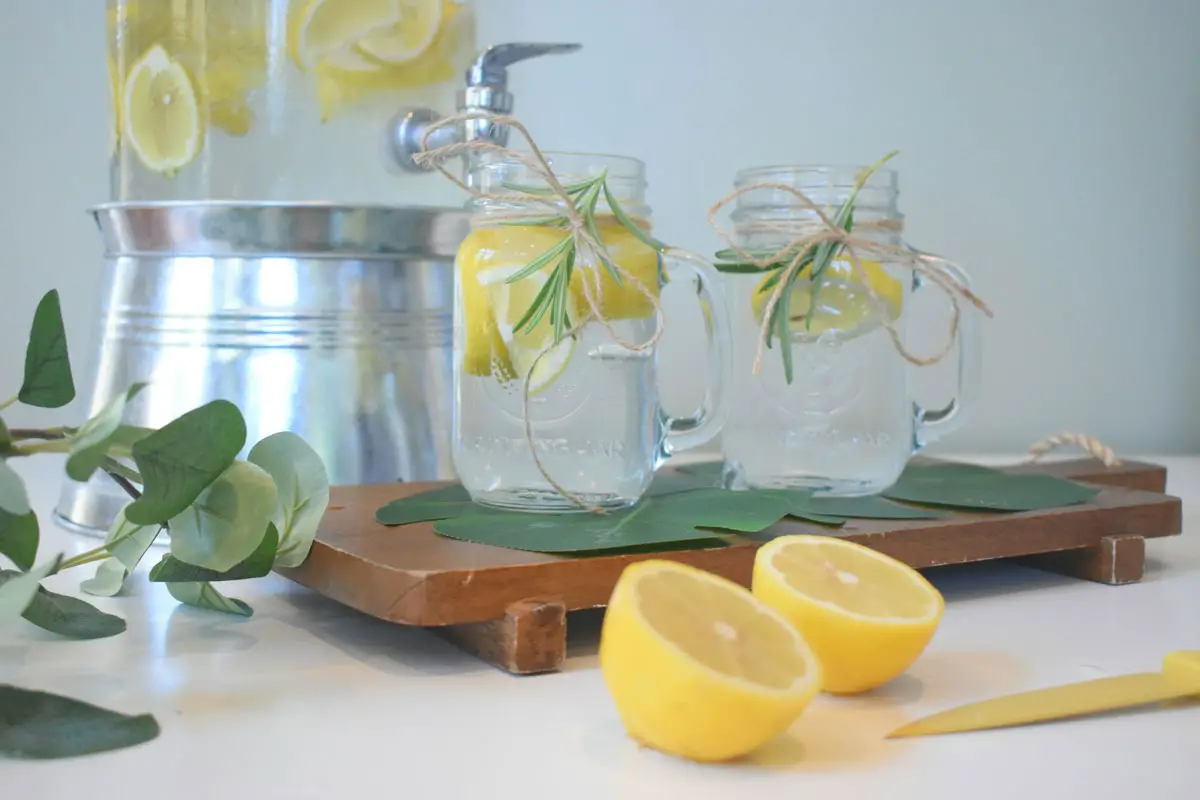Detoxing: Is It Worth The Effort?

Detoxing is a word that gets thrown around a lot. Worse still, there’s a gulf in understanding between the lay public and people with scientific education.
The public views the word “detox” as meaning, “doing stuff (usually involving drinking green smoothies) to feel healthier and give the body time to heal and repair after years of dietary abuse.” By contrast, the scientific community believes it means “eliminating toxic chemicals.”
This gulf in understanding is why there is now a cottage industry of highly educated people “debunking” detoxing, telling everyone it doesn’t make sense because the body already has all the detox mechanisms it needs.
When you write it this way, you can see where the confusion arises. Scientists are precise with their language, while the public is loose with it.
With that said, detoxing is probably still worth it, regardless of the definition you use. That’s because it is essentially a byword for being healthy.
How Does The Body Detox?
The body detoxes through several channels, according to https://nutritionsimplified.co/blog-post. The main one is the liver. It contains dozens of specialist cells designed to eliminate harmful waste products and filter them into other areas for excretion.
The detoxing capacity of the liver is so important that people can only survive a few hours without it. It takes unwanted chemicals from the bloodstream and transforms them into harmless substances the body can reuse or release later on via the bowel or the bladder.
The kidneys also have a detoxification role. Think of them like the scrubbers in your car or air conditioning unit that remove unwanted material. These accumulate waste products which then accumulate in the urine before being excreted.
The digestive system also plays a minor role in detoxification, moving faeces closer to the exit throughout the day. This action prevents unwanted matter from building up and festering unpleasantly.
Finally, the lungs are technically a detoxification organ. That’s because they take carbon dioxide from the bloodstream and release it back into the air for plants to eat. (It’s not detoxification in the usual sense we would imagine it.
Do Detox Diets Work?
Researchers will always tell you detox diets don’t work. That’s because it isn’t the food itself that detoxifies the body, but rather the organs using it for energy.
For example, researchers will say things like your liver, kidneys and digestive system will take care of detoxifying harmful chemicals and eliminating waste products for you. You don’t have to go on a special diet or fasting regime since basic biology does the work automatically, no matter what goes into your mouth.
They will also point to the potential downsides of restrictive diets, such as nutrient deficiencies, unwanted weight loss, fatigue, and dangers if you have underlying health conditions. Of course, you’ll want to avoid these, too.
However, there are channels through which detox diets probably work. For example, when you go on a detox diet, you eat less contaminated foods. Unlike meat and fish which are chock full of harmful chemicals, including heavy metals, PCBs, and hormones, plant foods contain far fewer of these elements.
You also reduce exposure to the most harmful foods from a toxin perspective, such as tuna, beef, eggs, and swordfish. Avoiding these for a time can cause blood levels of contaminants to reduce significantly, helping you feel better in as little as a fortnight.
Even if the issue isn’t about avoiding certain polluted foodstuffs, going on a detox diet might simply improve the body’s ability to leverage its existing detox mechanisms. For example, broccoli is now famous for boosting the activity of various detoxification enzymes in the liver. These root out unwanted chemicals and dispose of them safely – more so than if the person hadn’t eaten broccoli in the first place.
Other compounds in foods might also reduce inflammatory processes that get in the way of the body’s detox efforts. Patients with kidney disease often benefit from going on a low protein (low meat) diet because it improves the function of the organ and lets it do its job better.
So, in summary, it’s not correct to say that detox diets don’t work. Most probably do work, it’s just that there is a misunderstanding between the public and the scientific community. Researchers have strict views of what constitutes “detoxing” and what doesn’t.
However, there is one situation where detoxing is real, as explained by https://addictionsuk.com. People coming off illicit substances really do go through a detoxification process as harmful compounds leave their system.
How To Detox
The scientific community believes that the idea you can “cleanse” your body with a detox is false. And, superficially, they are correct. Eating greens won’t necessarily get rid of all the junk in your system.
But, as discussed, this view misses a lot of nuance. People don’t literally believe a healthy lifestyle replaces the action of their liver. Instead, they view detoxing as providing their bodies with fertile soil to improve their health.
The fact that some lifestyle modifications really do improve detoxing is a bonus!
So, how can you detox effectively? Let’s look at your options.
Hydrate More Often
The first and perhaps most obvious step is to hydrate more often. Bringing in plenty of fluids ensures your body always has the water it needs to flush out anything it wants to eliminate.
Drinking plenty of water is particularly critical for the kidneys and bladder. These organs rely heavily on proper hydration to eliminate unwanted waste products.
Hydration can also help with liver function and avoid dry mouth, a condition where bacteria can thrive.
Aim to drink a large tumbler full of water or tea with every meal, plus a couple of extras throughout the day. Don’t forget to continue consuming fluids until the evening, a couple of hours before going to bed.
Eat A Healthier Diet
When detoxing, don’t eat anything that might add to the load of chemicals in your body. Stay away from all animal foods (since these tend to be high in unwanted substances). Also, be careful with the produce you choose. Going organic is usually better because it reduces the quantity of chemicals on the surface of the food you eat, again reducing your exposure.
You can fast for a short period, but don’t starve yourself. Fasting can be dangerous if you don’t do it properly.
If you do decide to fast for more than three to five days, be extra careful when eating for the first time again. Some individuals can experience refeeding syndrome, a condition where the body fails to produce sufficient electrolytes to keep it in balance. Don’t eat everything all at once. Instead, spread it out over several days, slowly reintroducing calories over time to get your body used to them.
Don’t Eat Processed Foods
During a detox, you’ll also want to avoid processed foods. These can contain high concentrations of additives and fillers that are challenging for the body to process (or that can have adverse effects).
Steer clear of processed foods advertised as being healthier for you. These often contain all the ingredients you want to avoid, and may even spike blood sugar levels higher than conventional treats and sweets.
Give Your Body Time To Recover
You can enhance the effects of your new healthy routine by getting adequate sleep. Going to bed at the same time at night and rising early in the morning can work wonders for your health.
Sleep is the time when your body drains your lymphatic system. In essence, it supports the detox process (which is why many of us feel refreshed after a good night’s sleep).
Increase Your Fibre Intake
You can also improve your body’s ability to detox by increasing your fibre intake. The indigestible form of carbohydrate can bind to toxins in the intestines and flush them out when you go to the bathroom.
Increasing your fibre intake is something you should do slowly. It can take time for your body to get used to higher levels of roughage if you don’t normally consume it.
Avoid the temptation to use synthetic or isolated fibre products. These don’t work and can leave you feeling blocked up if you consume too many of them.
Human’s ancient ancestors ate around 80 to 100 grams of fibre a day from the natural vegetation around them. You should aim for something similar after building up to it for a few months,
Brush Your Skin
Finally, you might want to try dry-brushing your skin to move the lymph around. This technique helps you drain the fluid from specific areas of your body.
If you don’t like that idea, massage can work just as well. It helps to get rid of muscle knots and remove inflammatory fluid at the same time.
Wrapping Up
So, is detoxing worth the effort?
The answer is probably yes. While scientists might disagree about the concept, improving your diet and lifestyle can have profoundly positive effects on your life. If they detox you at the same time, then why not give them a go?










